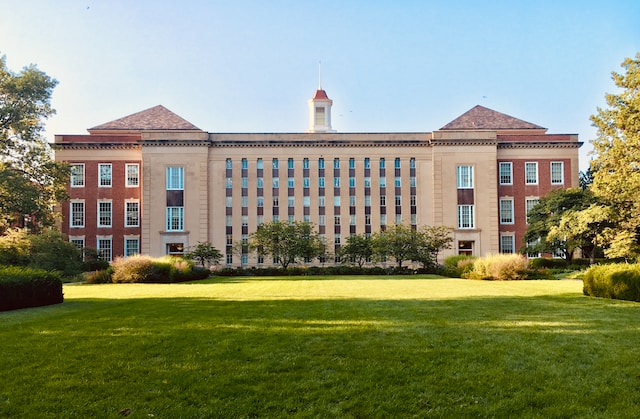The University of Washington, commonly referred to as UW or simply Washington, is a public research university located in Seattle, Washington. Founded in 1861, UW is one of the oldest and most respected universities on the West Coast. Sororities have been an important part of the campus culture at UW for over a century, providing opportunities for sisterhood, leadership, and community service.

Currently, UW has 19 Panhellenic sororities that are officially recognized by the university. These organizations are members of the National Panhellenic Conference (NPC), which is the governing body for 26 women’s fraternities and sororities across the United States and Canada. The Panhellenic sororities at UW include Alpha Chi Omega, Alpha Delta Pi, Alpha Epsilon Phi, Alpha Gamma Delta, Alpha Omicron Pi, Alpha Phi, Chi Omega, Delta Delta Delta, Delta Gamma, Gamma Phi Beta, Kappa Alpha Theta, Kappa Delta, Kappa Kappa Gamma, Pi Beta Phi, Sigma Kappa, Sigma Sigma Sigma, Theta Phi Alpha, Zeta Tau Alpha, and Delta Zeta.
Each sorority at UW has its own unique history, traditions, and values. However, all of the sororities share a commitment to philanthropy, leadership, scholarship, and sisterhood. Sororities are known for their close-knit communities and for providing opportunities for personal growth and development. Many sorority members form lifelong bonds with their sisters and are active in alumnae networks long after they graduate.
The recruitment process, commonly known as “rush,” is a significant event for sororities at UW. It takes place at the beginning of the fall semester and involves a series of events designed to introduce potential new members (PNMs) to each sorority. PNMs attend social events, meet current members, and learn about each sorority’s values and traditions. At the end of the recruitment process, PNMs receive bids from the sororities they have visited and must choose which sorority they want to join.
Sorority life at UW is not for everyone, and some students choose not to participate in Greek life. However, for those who do join a sorority, the experience can be rewarding and enriching. Sororities offer a wide range of opportunities for involvement, including community service, philanthropy, social events, and leadership positions. Many sororities have their own housing facilities on or near campus, providing a close-knit living environment for members.
In addition to the benefits of belonging to a sorority, there are also challenges and criticisms that come with Greek life. Sororities have been criticized for perpetuating exclusivity and elitism, and for reinforcing traditional gender roles and stereotypes. Some students also feel that Greek life can be insular and cliquey, and that it can limit social interactions with a diverse range of students on campus.
In recent years, UW has taken steps to address these criticisms and promote a more inclusive and welcoming campus culture. In 2020, the university announced a new initiative to reform Greek life on campus, including increased transparency and accountability for sororities and fraternities. UW has also launched programs to promote diversity, equity, and inclusion on campus, including the creation of new student organizations and the expansion of resources for underrepresented students.
Overall, sororities are an important part of the social and cultural life at UW. While they have faced criticism for perpetuating exclusivity and elitism, many sorority members find that their experiences in Greek life are positive and meaningful. As UW continues to evolve and grow, sororities will undoubtedly play a role in shaping the campus community and the experiences of future generations of students.